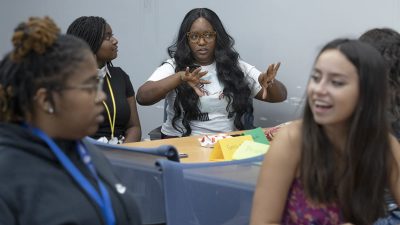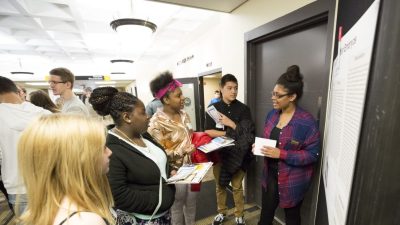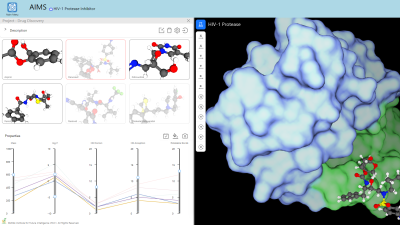Preventable Differences: Exploring Public Health Careers with Black and Latino Youth
-
Project Description
The New York Hall of Science will work with our partners to increase public awareness, particularly among Black and Latinx adolescents and young adults, about the importance of establishing a diverse public health workforce to help create equitable health outcomes for Black and Latinx U.S. residents. We will focus specifically on the disproportionate impact of the COVID-19 pandemic on Black and Latinx Americans and the public health response to this problem. The project will create a public workshop series for youth and a set of five exhibits, all focused on exploring public health careers and the role of public health in alleviating inequitable health outcomes for Black and Latinx people.
-
Abstract
The New York Hall of Science will work with our partners to increase public awareness, particularly among Black and Latinx adolescents and young adults, about the importance of establishing a diverse public health workforce to help create equitable health outcomes for Black and Latinx U.S. residents.
In the early months of the COVID-19 pandemic, Dr. Eliseo Pérez-Stable, the Director of the National Institute on Minority Health and Health Disparities at the National Institutes of Health, wrote with his colleagues: “… [Public health] strategies that are culturally appropriate and community competent and that consider the nuances of population, community, family, and individual differences have a vital role in reducing health disparities, promoting health equity, and improving population health” (Hooper, Nápoles, & Pérez-Stable, May 11, 2020). The capacity of the public health community to work collaboratively with vulnerable communities to create effective responses to public health crises like the COVID-19 pandemic depends upon a workforce that is both personally invested in this work, and professionally trained to do it. This workforce needs to be prepared to combine scientific expertise with a capacity to build trust, share knowledge, tolerate uncertainty and mobilize participation among populations experiencing high levels of stress.
Over the five year grant period we will develop exhibits and programs that will explore public health professions and the impact they can have on alleviating chronic disparities in health outcomes for different populations. We will focus specifically on the disproportionate impact of the COVID-19 pandemic on Black and Latinx Americans and the public health response to this problem. The project will create a public workshop series for youth and a set of five exhibits, all focused on exploring public health careers and the role of public health in alleviating inequitable health outcomes for Black and Latinx people.
We will work with our partners to achieve three goals over five years:1. To support a sustained dialogue among Black and Latinx youth in Queens, NY and Oakland, CA and public health professionals and epidemiologists who serve their communities, about the COVID-19 pandemic and the professions that are involved in creating effective responses to this crisis in those communities;
2. To reach hundreds of Black and Latinx youth and their families with key messages about the roles of public health professionals in creating equitable responses to health crises through youth programming and exhibits;
3. To reach tens of thousands of science center visitors nationally with key messages about the roles of public health professionals in creating equitable responses to health crises, through youth programming and exhibits.
-
Dissemination Strategies
Community forums bringing together community members, public health professionals, and scientists and medical experts; Development of a workshop guide for a workshop series focused on public health career exploration for youth, and development of sharable design and fabrication plans for a set of exhibits focused on a public health topic, both to be widely shared through NYSCI’s website and with the cultural institution/science center and STEM Education communities.
Project Audience
Black and Latinx youth and their families, science center visitors, public health professionals
Subjects Addressed
STEM education, public health, epidemiology






